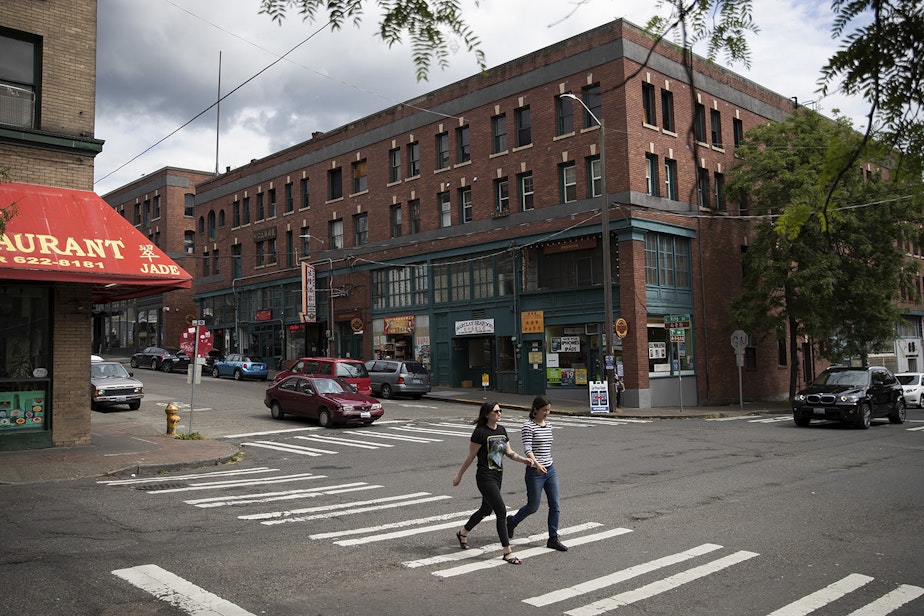Chinatown-International District grapples with losing 2 community newspapers and ‘their voice’

Two Seattle newspapers focused on the Asian community have stopped printing.
The Northwest Asian Weekly will only publish online. The Seattle Chinese Post, a Chinese language newspaper, shut down altogether.
Many advocates and residents of the Chinatown-International District say they fear they'll be left without a voice and a way to safely advocate for their neighborhood.
According to a study published by Northwestern University, two local newspapers are closing in the U.S. every week. The Northwest Asian Weekly and the Seattle Chinese Post joined that list earlier this month.
“The numbers for print have been declining, that’s the trend,” said Assunta Ng, founder of the Northwest Asian Weekly, adding that traffic for the paper’s website has increased.
On Jan. 22, the first day of the Lunar New Year, the Chinatown-International District came alive.
Drums and music echoed as four brightly colored lions danced. They serenaded businesses with lettuce and red envelopes at their doorstep. The lions symbolize power, prosperity, and good luck.
Sponsored
Across the street at Hing Hay Park, people played ping-pong under the Pagoda.
“This is where most people gather,” said Tanya Woo, owner of the Louisa Hotel. “During the weekdays, people come here for lunch. They have tables out, a giant chess board. It's really the center of activity.
Woo said many seniors used to come to the park and bury their noses in the Northwest Asian Weekly.”
“We really feel like they echo community voices,” Woo said. “If there was an issue, they would blast it out there.” She added that the paper was “the voice of the community” — that’s why people would read it.
Ng said she’s especially concerned about how seniors will get their news going forward. Many of her long-time readers wrote letters or called to say they can't access the online version she said. They may not have a computer at home or know how to use the internet.
Sponsored
“I feel very bad about this,” Ng said.
Woo offered a word of advice to seniors in the community: “Do not just give up on reading the news or finding out what’s going on.”
Ng said her newspaper is “the voice of the community”, and has been a catalyst for activism.
For instance, Sound Transit proposed several locations for a new light rail station and tunnel last summer, as part of the West Seattle-Ballard light rail extension. One of the options would put the station on 5th Avenue, in turn displacing many businesses near the Historic Chinatown gate.
If that comes to pass, it wouldn’t be the first time the community has been displaced, Woo pointed out.
Sponsored
Seattle’s first Chinatown, established by immigrants in the 1860s, sat along the waterfront. But following the Great Seattle Fire of 1889, Chinese immigrants set up a community on South Washington Street before moving to its current home along King Street.
“They keep moving us back and taking away our neighborhood”, Woo said. “There’s nowhere else we can go. We need to make sure we claim as much as we can,” said Woo.
Woo said the paper was one of the few media outlets that covered the proposal and amplified how the station would impact the neighborhood. Following that coverage, the community began to push back on the proposal, holding meetings and rallies at Hing Hay Park.
But for those who are less inclined to stand on the front lines, the Northwest Asian Weekly “was a safe way to empower and lift up those voices,” Woo said.
Sound Transit and city leaders have not made a decision yet. More meetings and public comment sessions about the station are scheduled in the coming months.
Sponsored
For her part, Ng said she is proud of the civic role the Northwest Asian Weekly has played in the community.
“This country is different,” she said. “We have a right. You have to use it. If you don’t, you lose it. You lose you right and you lose your voice.”
Woo added that her paper helped the community understand that “they have to practice democracy and exercise their rights. It's part of the beauty of this country.”
Ng said she is looking to work with nonprofit organizations to help get news to seniors and immigrant communities.
The lion dances will continue in the Chinatown-International District for the next few weeks in celebration of the Lunar New Year. But it's not clear if the lions will bring prosperity and good luck to the Northwest Asian Weekly as it enters its new, online-only era.

